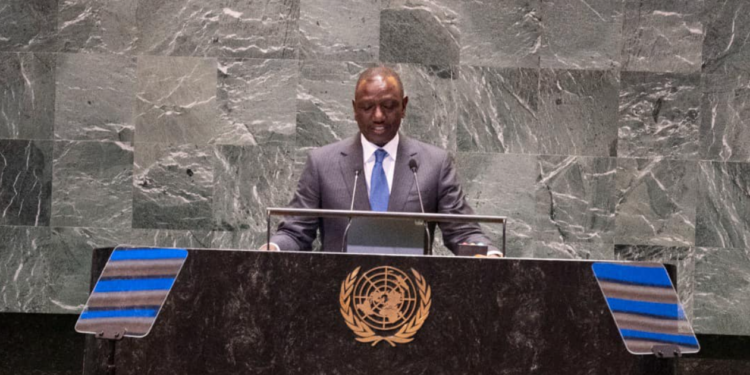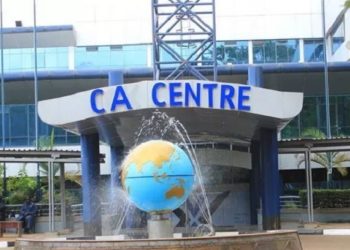President William Ruto has urged the international community to address the widening digital divide, warning that rapid advancements in artificial intelligence (AI) and technology are leaving Africa and other developing regions behind. Speaking at the United Nations General Assembly in New York, Ruto highlighted the disproportionate benefits of the tech revolution for developed nations, despite Africa’s critical resources that fuel these innovations.
“The pace of technological advancement, particularly with AI, is widening the global digital divide,” Ruto stated, pointing out the inequitable distribution of gains. “Africa holds critical resources for the tech revolution yet receives disproportionately low benefits,” he added, calling for urgent action to ensure that Africa can fully participate in and benefit from global technological advancements.
Ruto’s speech came amid growing global concerns over the ethical, economic, and political ramifications of AI. While many developed countries are reaping the benefits of these technologies, Africa’s exclusion from the digital economy threatens to exacerbate existing inequalities. Ruto called for targeted investments to bridge the digital divide and ensure that African countries are not left out of the tech-driven future.
Ruto’s address extended beyond the digital divide, with a strong emphasis on global governance reforms. He argued that the multilateral system, including the United Nations, is no longer fit for purpose in addressing today’s complex challenges, from climate change to economic inequality. In particular, he stressed the need for Africa to have permanent representation on the UN Security Council, describing it as a matter of justice and historical redress.
“We must address the historical injustice of Africa’s lack of permanent representation on the UN Security Council as a matter of justice in the ongoing UN reforms,” Ruto said, calling for a reconfigured multilateral framework that truly reflects the diversity of the global community.
Ruto also used the platform to call for reform of the international financial system, highlighting the severe funding shortages that developing countries, particularly in Africa, continue to face. He noted that these financial gaps have hindered progress toward achieving the UN’s Sustainable Development Goals (SDGs).
Citing the UN Secretary-General’s report for 2024, Ruto pointed out that only 17% of the SDG targets are on track to be achieved. He attributed much of this shortfall to unmet financial commitments from developed nations, which have left many countries in the global South struggling to finance essential public services and economic development projects.
“At the 2023 UN SDG Summit, we highlighted the urgent need to overhaul the global financial system,” Ruto said, emphasizing that imaginative solutions for debt relief and development financing are essential to close the SDG gap. He called for innovative debt relief mechanisms and increased concessional financing to help developing countries address their pressing needs, particularly in the areas of economic transformation and climate resilience.
Ruto also showcased Kenya’s domestic efforts to combat climate change, reiterating his country’s pledge to increase forest cover by 30% through the planting of 15 billion trees. The initiative, largely led by Kenya’s youth, is part of a broader plan to employ 200,000 young people in sustainable public works focused on ecological restoration and infrastructure development.
“Our planet is in crisis—oceans are rising, deserts are spreading, and millions are displaced,” Ruto remarked, emphasizing that global inaction would lead to unprecedented disasters. He described Kenya’s commitment to climate action as not just a national duty but a contribution to the global fight against environmental degradation.
Two weeks before his UN address, Ruto launched the “Climate Works” program, which aims to provide green jobs and restore the country’s degraded ecosystems. “In Kenya, we aim to increase forest cover by 30% by planting 15 billion trees,” he said, underscoring the country’s role as a leader in climate action within the African continent.
In a separate part of his speech, Ruto highlighted Kenya’s ongoing involvement in international peace efforts, particularly its Africa-led mission to Haiti. He celebrated Kenya’s leadership in the mission, stating that what initially appeared to be an impossible task is now making meaningful progress toward peace in the troubled Caribbean nation.
“I was in Port-au-Prince to witness the significant progress made by Kenya’s Africa-led mission,” Ruto noted, expressing optimism that the mission could serve as a model for future peacekeeping initiatives in regions affected by conflict.


















